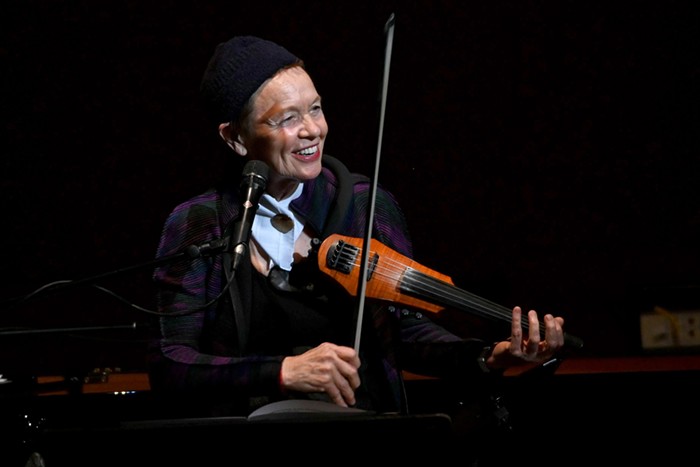1 + 1 = 2. Hopefully, we all learned that in preschool.
Bands—real bands, rock bands—have more than two members. Four or five... maybe three in a pinch. But not just two. We've all learned that from reruns of The Monkees, royalty squabbles between the Smiths, and the buzz over every reunion tour. Nobody needs a textbook to recognize that Page and Plant doing MTV Unplugged does not equal Led Zeppelin. Brooklyn duo Ratatat—multi-instrumentalists Mike Stroud and Evan "E*Vax" Mast—have spent the last few years wriggling around this logic, with varying degrees of success.
"We're not the most professional outfit," admits Stroud today, apropos of their tour preparation. "We don't rent out a studio and get onstage or anything. We're pretty laidback."
In the beginning, that easygoing attitude showed. The stripped-down grooves and surging fuzz guitar of their 2004 eponymous debut sounded good on the dance floor, but the band struggled to sustain interest live, where their mellow, bordering-on-static performances—no seam-splitting choreography or mind-blowing special effects, just two dudes playing their instruments—did little to enhance the material.
But Ratatat quickly adapted. The writing of their second album, the markedly improved Classics, was informed by what did—and didn't—get live audiences pumped up. With its more defined sense of melody, Classics also confirmed what their self-released remixes of hiphop tracks by Jay-Z and Kanye West hinted at: Their slinky sound packed more punch when anchored by a focal point.
With their latest album, LP3, the duo continues to explore new ways of making an impact. From fluid Spanish guitar licks on "Mi Viejo," to the courtly, A Clockwork Orange–style synths prancing through "Dura," the album's 13 tracks support Stroud's assertion that even though they work sans vocalists, they definitely hear voices. "I like to think of the guitar parts as singing, like listening to the backups on a James Brown track will give me ideas."
One timbre that pops up repeatedly on LP3 might seem more at home on a Carter Family platter: the autoharp. Initially, they worried the folksy instrument sounded too celestial, like cherubim and seraphim were fluttering overhead—"everything sounded very... heavenly"—but they soon found ways to make it work. Then there's the zarb (also known as a tonbak), a Persian music staple. Ratatat were turned on to the instrument via an album by the Chemirani Trio, a father and two sons who have helped elevate the zarb's international profile.
"It is a simple instrument, just a drum, but they get hundreds of sounds from it. We listened to their music a bunch, and just freaked out... so Evan got a zarb," Stroud says.
But did the duo stick to the lessons learned with Classics? In other words, with so many toys used in the studio, will LP3 lend itself any better to live performance?
"Not really, actually," admits Stroud. "There are so many sounds we can't really re-create, without being in the actual studio," he concludes. He sounds nonplussed. "We've always had that problem with our band. It's nothing new. We'll figure something out." As on previous tours, a third person will be tagging along to play organ and other instruments. And although the zarb may stay home, Stroud says, "We're definitely going to bring out the autoharp." Fingers crossed, it will all add up.



















